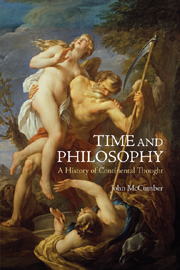Book contents
15 - Life and gender in Agamben and Butler
from IV - Onwards, 2011–
Summary
The final two philosophers we shall look at are, like Badiou and Rancière, not only flourishing today but hard at work. Unlike Badiou and Rancière, they are not in France: Giorgio Agamben is a professor at the University of Verona, in Italy, and Judith Butler is at Columbia University, in the United States. Such international presence is nothing new for continental philosophy, of course; Kierkegaard was a Dane, and Marx lived in variety of countries before settling in England. Something, however, has changed: continental philosophers born during and after the Second World War are no longer concentrated in France and Germany. Continental philosophy has become a decentralized network, pursued in a broad variety of locales around the world.
SITUATING LIFE: GIORGIO AGAMBEN
Born in 1942 and educated at the University of Rome, Agamben is the first continental philosopher in this book who has no clear memories of the Second World War. This does not mean that his philosophy ignores it, or that he somehow philosophizes as if the war had never happened. To understand the modern world, the one in which we live, requires, for Agamben, a confrontation with all the horrors of the mid-twentieth century and, most especially, with the Holocaust. Agamben's lack of concrete memories seems, however, to enable him to approach the horror of that time more conceptually, and hence more directly philosophically, than do his older colleagues.
In his 2008 The Signature of All Things (SAT), Agamben appropriates American philosopher of science Thomas Kuhn's conception of a “paradigm” (Kuhn 1970).
- Type
- Chapter
- Information
- Time and PhilosophyA History of Continental Thought, pp. 373 - 393Publisher: Acumen PublishingPrint publication year: 2011

